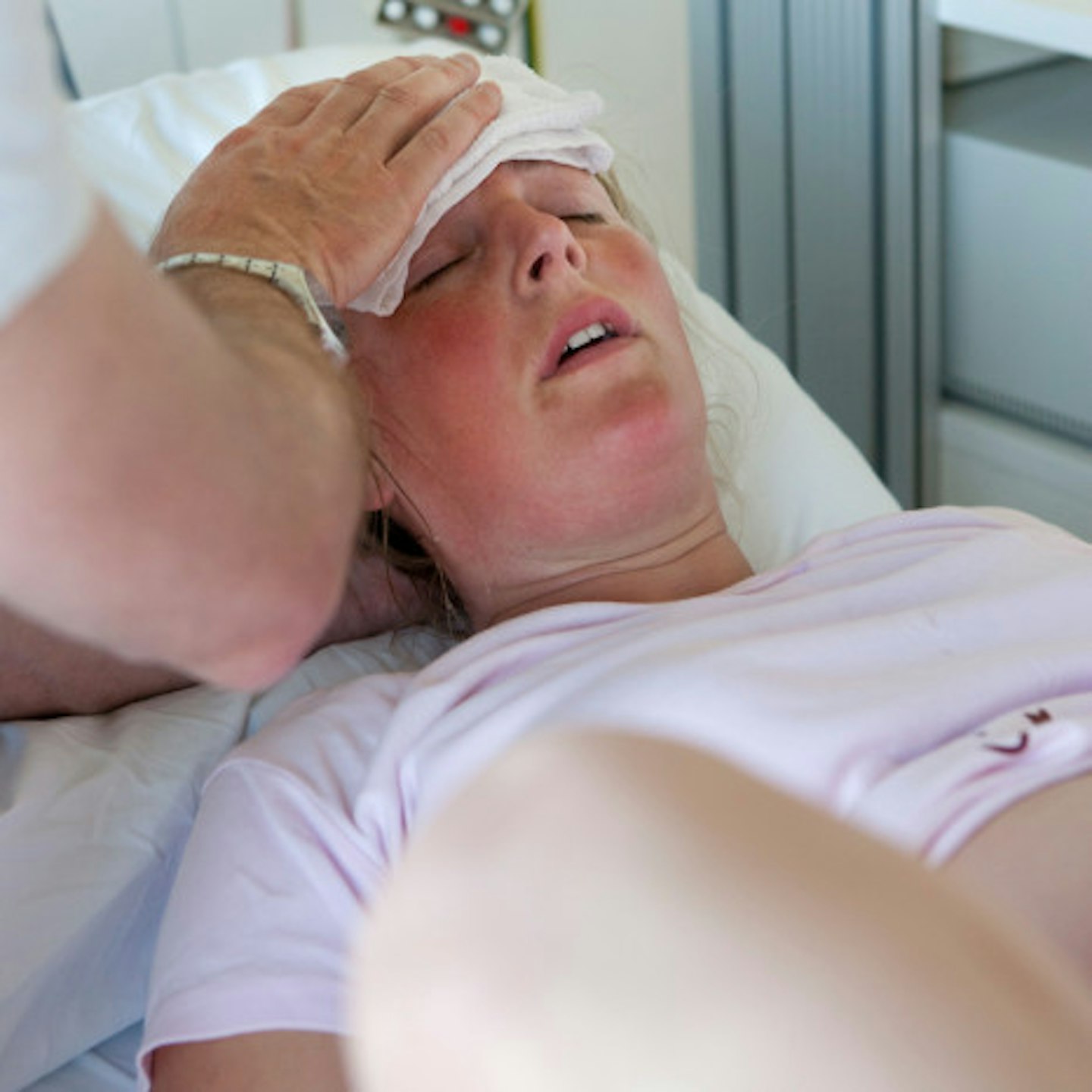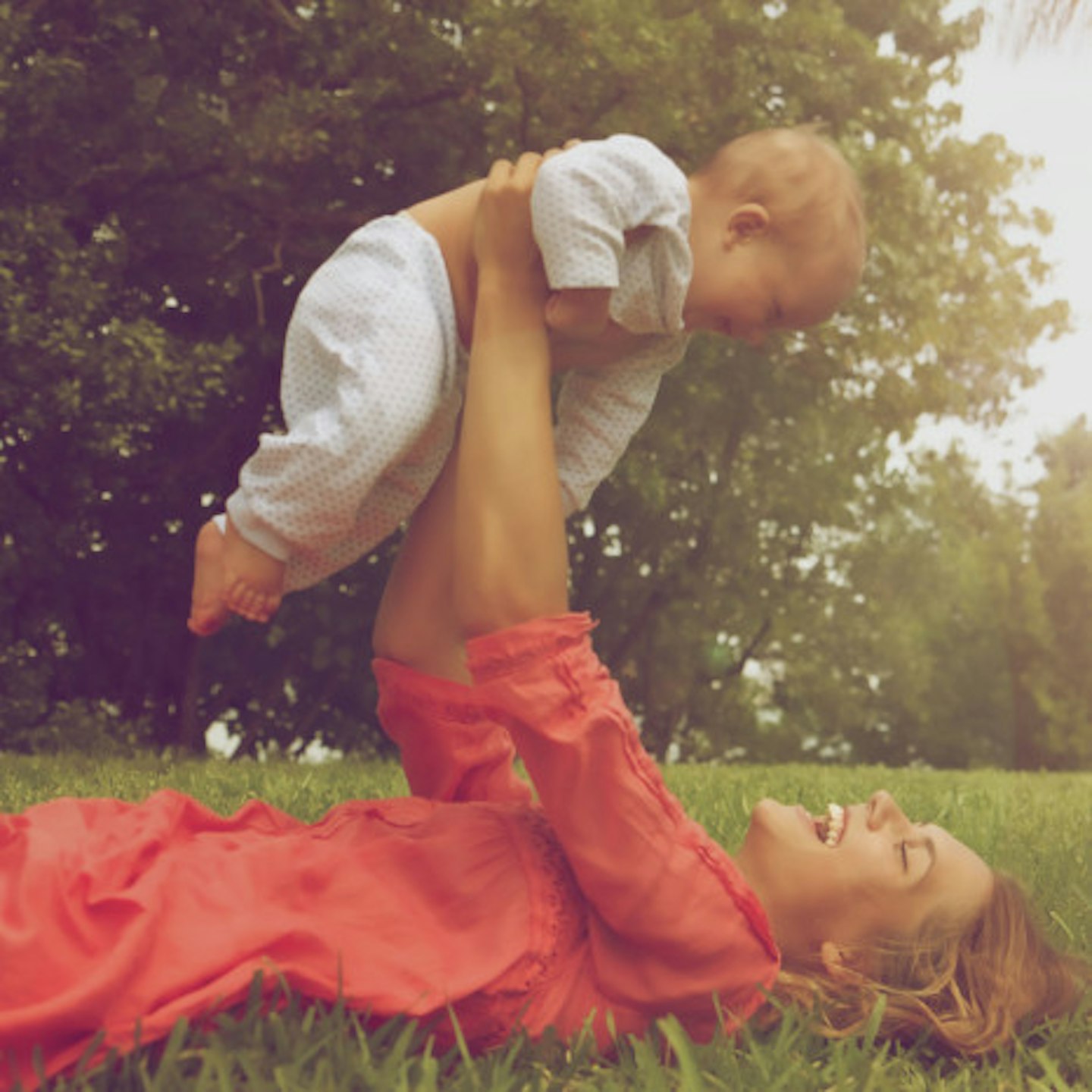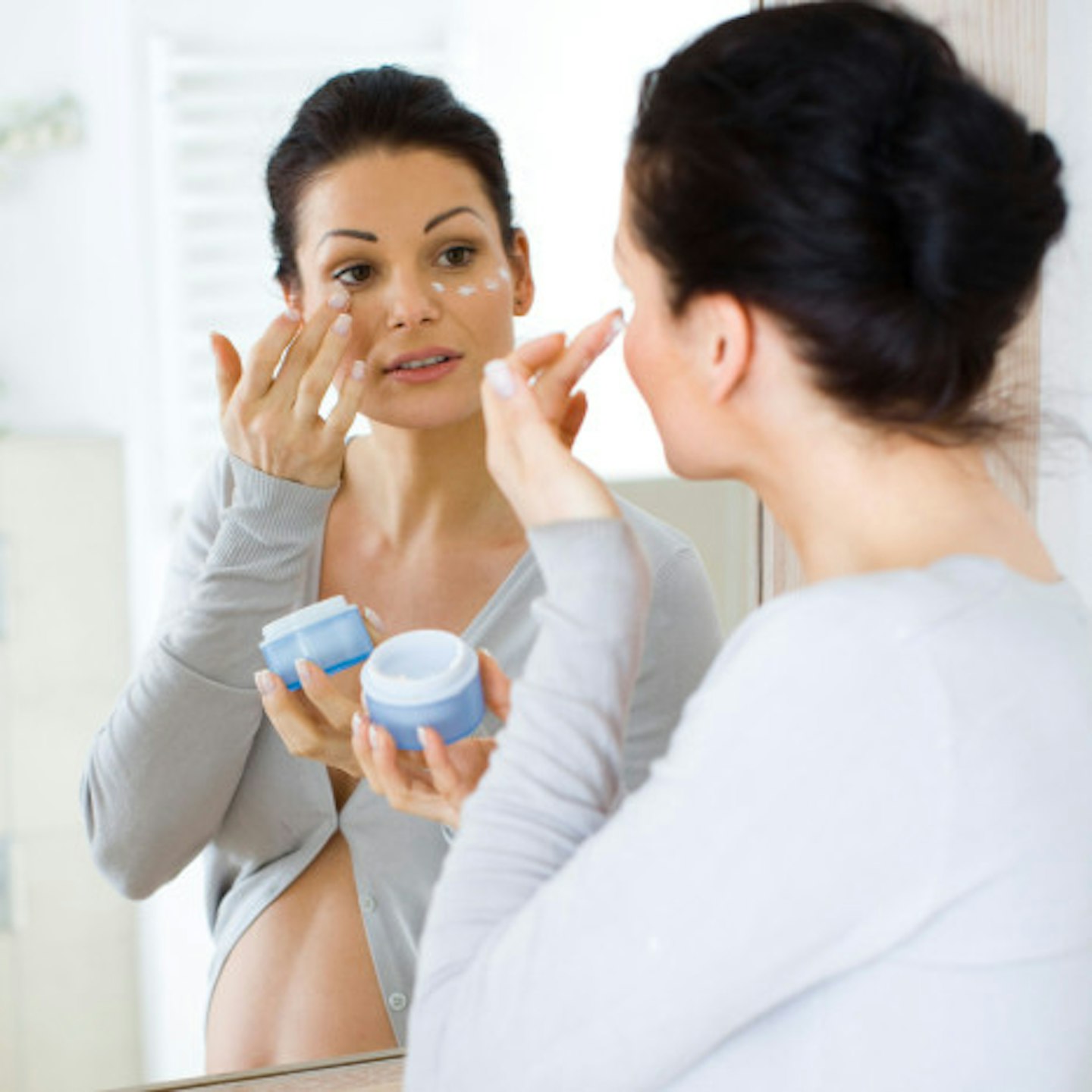From leaking urine to month-long periods, it’s time to discuss some of the most common post-pregnancy body shockers.
Are you ready for this?
It will hurt to sit down
For about 10 days after childbirth, it can hurt to sit down. Which makes sense - after all, you’ve done a LOT of work down there.
Your vagina will be wider
After your baby is born, your vagina will change.
Dr Suzy Elneil explains to the NHS: “The vagina can feel looser, softer and more ‘open’. It may also look and feel bruised or swollen.”
New mums are encouraged to try pelvic floor exercises (sometimes called Kegel exercises) to help tone things up.
They’re also advised to avoid doing anything which may strain those muscles, which means no heavy lifting - and, of course, changing your diet to include foods which will help avoid constipation.
If you're still feeling that things are still quite ‘loose’ at your six-week follow-up appointment, let your doctor know. There are therapies and special exercises they can recommend to help get things back in place.
You may experience vaginal gas
With all the changes to your body, gas can start escaping from your rectum and into your vagina… before sneaking out completely. It should stop within a few months to a year.

You may experience hair loss
During pregnancy, oestrogen causes more of your hair to grow - and less of it to shed. But, once you’ve delivered your baby and your oestrogen levels have fallen (around 12 weeks later), a large amount of your hair will stop growing and start falling out.
Don’t worry too much, though. Dermatologists say that your hair should return to its pre-pregnancy thickness within six to twelve months later. Phew!
Incontinence is very likely
Labour and delivery will, unsurprisingly, take a toll on your bladder, causing temporary swelling and a loss of sensitivity.
Which, basically, means that you may not be able to tell when you need to pee, causing some leaking.
It’s important to give yourself regular toilet breaks, even if you feel like you don’t need to go, to ensure your bladder has the chance to empty regularly.
Your boobs may get smaller
It isn’t uncommon for women to lose a full cup-size after pregnancy, not to mention some sagging. And there is the possibility of stretch marks appearing on the breasts as well; don’t worry, it’s all completely normal and all part of the miracle of birth.

Your nipples may leak
It’s unsurprising that your nipples may leak whilst breastfeeding, but some women have reported that theirs kept on releasing a milky discharge long after they had weaned their baby. Once again, it’s completely harmless - but it is always worth checking in with a doctor, just to keep an eye on things.
AND ON THAT NOTE:
During pregnancy the nipples (as you probably will have noticed) become darker in colour - and these pigment changes tend to be permanent.
You can also expect your aerola (the area immediately surrounding the nipple) to thicken and become a little larger in diameter, as well as the nipples themselves to remain longer than they were in their pre-pregnancy state.
There's a strong chance of hemorrhoids
The hemorrhoidal veins are put under an immense amount of pressure during labour, so it makes sense that many women go home with a baby AND monster hemorrhoids. Make sure to apply cold compresses and use medical wipes after you go to the toilet - and, most importantly, to tell your doctor if they don’t go away after a week or two.
There’s no need to be embarrassed about it, as it happens to plenty of us - and there’s no need to suffer in silence.
There will be vaginal bleeding
You may have had the pleasure of skipping periods for the past nine months, but that’s all about to change once you have your little one in your arms.
The bloody discharge starts off bright red, before fading to a pinkish hue, but it will continue for up to several weeks. Be sure to use sanitary pads as opposed to tampons (these can increase the chance of infection) and take things slowly - you want to give your body time to recover.

Expect swollen feet
The fluid your body produces during pregnancy has to go somewhere and, most of the time, it winds up in your feet and ankles, so you may notice some swelling after childbirth.
While the swelling can go away relatively quickly, some women have found that their feet have permanently gotten one or two sizes bigger as a result.
There will be soreness in the perineum
Your perineum can feel sore in the immediate period after childbirth, especially if your skin tore or you needed stitches to repair a tear or episiotomy after giving birth.
Talk to your midwife or doctor about the best painkillers to use and, most importantly, be sure to keep the area clean. This means daily baths or showers, washing your hands before and after changing your sanitary pads, and changing them regularly.
There may be vaginal dryness
According to the NHS, it’s normal for the vagina to feel drier than usual after childbirth.
Dr Suzy Elneil explains: “Once you stop breastfeeding and your periods have returned, the levels of oestrogen revert to pre-pregnancy levels.
"If you’ve noticed dryness, it should improve."
Your may develop a ‘pregnancy mask’
Some women (particularly those with darker skin) develop blotchy areas of darkened skin on their face during pregnancy. This is known as ‘pregnancy mask’ or, more officially, melasma gravidarum.
These areas will probably fade within a few months after delivery and you skin should return to its normal shade.
However, for many women, the ‘pregnancy mask’ can become permanent - although, if you’re concerned about it, there are topical creams which can be sued to treat it.
Pain during sex is highly likely
Many women experience discomfort or dryness during sex after childbirth - and it is not unusual to feel less like having sex than usual. Be sure to speak to your partner about your feelings this, so that you can deal with the situation together.
REMEMBER: Do use contraception - it’s possible to get pregnant three weeks after giving birth.
There will be belly paunch - learn to love it!
For most women, the reality is that they will continue to look pregnant for a few months after giving birth. This is all down to looser abdominal muscles and your hormones, which are busily directing fat behind the muscles around the intestines.
Exercise can help to tone muscles and burn calories, but you should always embrace your post-baby body and be proud of everything it’s done.
There’s a reason they call childbirth a miracle, you know.
_646x363.jpg?ar=16%3A9&fit=crop&crop=top&auto=format&w=1440&q=80)